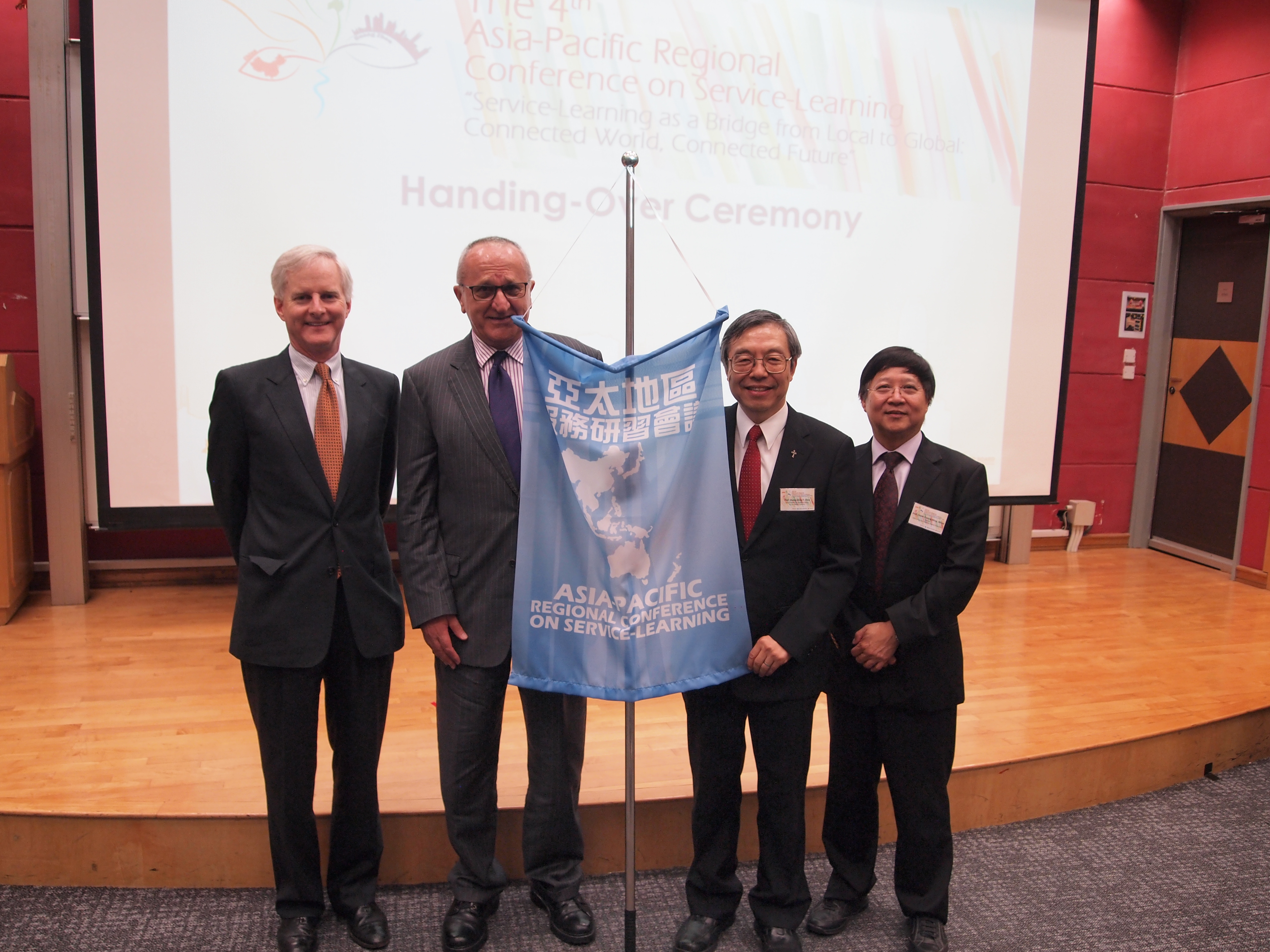Location
MD203, Paul Cardinal Shen Medical Building, Fu Jen University
Start Date
29-5-2015 4:20 PM
End Date
29-5-2015 5:30 PM
Description
The subjects that the students study in the class room should be deeply reflected in the field. It should not be mere observation learning, but actually plunging into action through demonstration. For example, Students of the Chemistry Department rightly chooses to conduct the consumer awareness programme by demonstrating some adulterated food and its adverse impact on health. Students of commerce departments should study the business know-how, various marketing techniques and new innovation in business. Students of economics department should study the developmental schemes of the government and its impact on the rural Masses. Thus service learning in Loyola is of two types.
1. RURAL IMMERSION
• 7 days of Rural camp in villages.
Objectives:
• To enable students to develop people oriented attitudes and to imbibe the spirit of concern for others.
• To initiate team process among the students' groups.
• To learn from the people about the realities at the grassroot level and develop a critical consciousness
Dynamics of the programme
During I year of Undergraduate, Students are provided rural exposure wherein they stay for six days and live the life of the underprivileged masses.
• Motivational session and immersion before going to the field
• Input on the stark realities of rural areas of India
• Orientation on the rural dynamics of India by the resource person to understand the dynamics of the community
• The teams exhibit their learning in the form of chart presentation, or through drama, skit and action songs. Summing-up session by the resource person
• Students will share about their difficulties and problems of the village they hail from. Since the students are formed into various groups and they will write their Group Reports.
Methodology of visit
1. Observation
2. Interaction with the people in villages
3. Focused group discussion
4. In-depth interviews with individuals
5. Exposure > experiment > experience > impact >involvement.
2. URBAN IMMERSION The students will be placed in the NGOs in the city of Chennai and will be taken to exposure visits to various NGOs. Students are grouped into teams depending on the size. Each team will take-up two programmes, one in the community and the other in the institution. Visits to slums by staff in-charge of Outreach will be arranged.
Recommended Citation
Jacob, M. S. J. A. (2015, May). Service learning in Loyola College, Chennai: Loyola Extension Awareness Programme (LEAP): For first year PG students. Paper presented at the 5th Asia-Pacific Regional Conference on Service-Learning: Love Journey: Community Engagement through Service-Learning, Fu Jen Catholic University, Taiwan.
Included in
Service learning in Loyola College, Chennai : Loyola Extension Awareness Programme (LEAP) : for first year PG students
MD203, Paul Cardinal Shen Medical Building, Fu Jen University
The subjects that the students study in the class room should be deeply reflected in the field. It should not be mere observation learning, but actually plunging into action through demonstration. For example, Students of the Chemistry Department rightly chooses to conduct the consumer awareness programme by demonstrating some adulterated food and its adverse impact on health. Students of commerce departments should study the business know-how, various marketing techniques and new innovation in business. Students of economics department should study the developmental schemes of the government and its impact on the rural Masses. Thus service learning in Loyola is of two types.
1. RURAL IMMERSION
• 7 days of Rural camp in villages.
Objectives:
• To enable students to develop people oriented attitudes and to imbibe the spirit of concern for others.
• To initiate team process among the students' groups.
• To learn from the people about the realities at the grassroot level and develop a critical consciousness
Dynamics of the programme
During I year of Undergraduate, Students are provided rural exposure wherein they stay for six days and live the life of the underprivileged masses.
• Motivational session and immersion before going to the field
• Input on the stark realities of rural areas of India
• Orientation on the rural dynamics of India by the resource person to understand the dynamics of the community
• The teams exhibit their learning in the form of chart presentation, or through drama, skit and action songs. Summing-up session by the resource person
• Students will share about their difficulties and problems of the village they hail from. Since the students are formed into various groups and they will write their Group Reports.
Methodology of visit
1. Observation
2. Interaction with the people in villages
3. Focused group discussion
4. In-depth interviews with individuals
5. Exposure > experiment > experience > impact >involvement.
2. URBAN IMMERSION The students will be placed in the NGOs in the city of Chennai and will be taken to exposure visits to various NGOs. Students are grouped into teams depending on the size. Each team will take-up two programmes, one in the community and the other in the institution. Visits to slums by staff in-charge of Outreach will be arranged.
